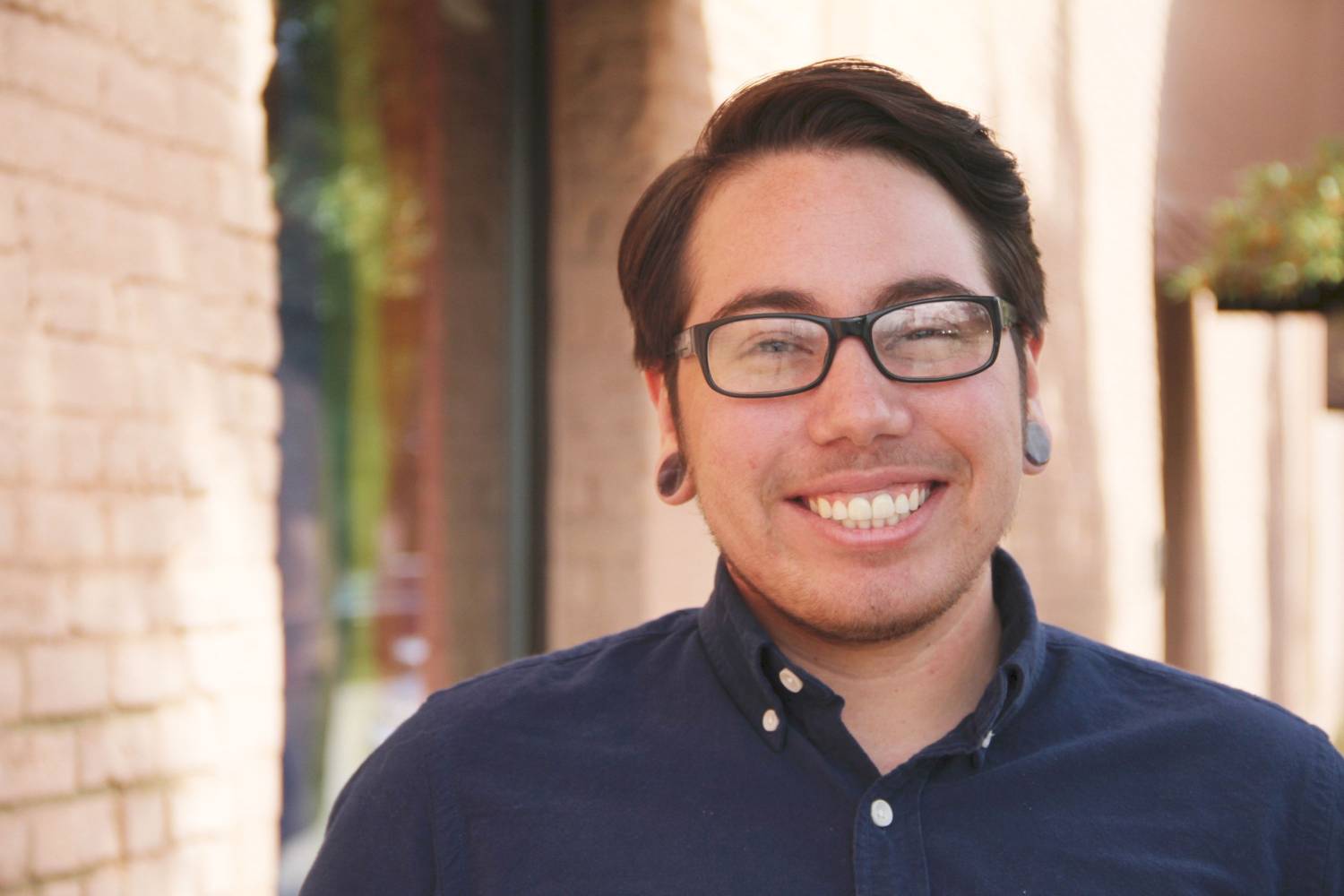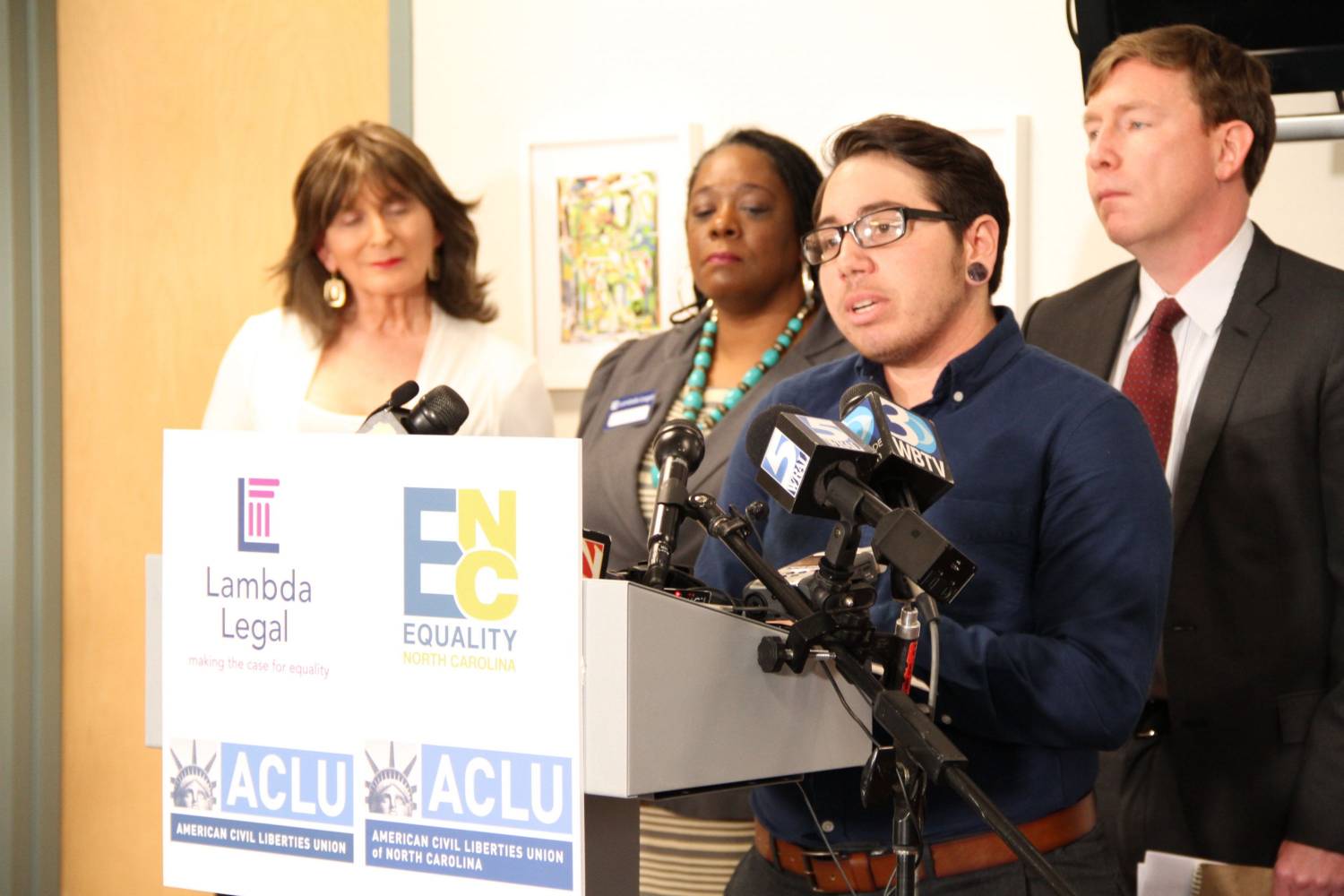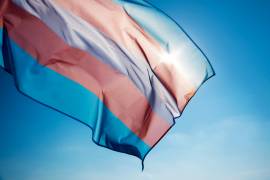September 15th to October 15th is National Hispanic Heritage Month, and October 15th is National Latinx AIDS Awareness Day. To mark both events, we spoke with Joaquín Carcaño, the lead plaintiff in Lambda Legal’s lawsuit against North Carolina’s anti-LGBT law, H.B. 2. He works as a project coordinator at the University of North Carolina (UNC-Chapel Hill) Institute for Global Health and Infectious Diseases, which provides medical education and services such as HIV testing to the Latinx population.
My grandfather immigrated from Mexico to the U.S. as part of the Bracero Program and started a life on the border in South Texas. That’s where I was born and raised, where most of my family is and the place I will always call home.
My interest in HIV-related work and activism began in high school, when I realized HIV affects marginalized communities, including my own. During college at the University of Texas at Austin, I worked directly with the HIV-positive community as an AIDS hospice volunteer. After college, I volunteered with Peace Corps in Peru and continued doing HIV-related work with underserved populations.
Living in North Carolina has given me the opportunity to continue HIV work with the Latinx community.
Being a Mexican-American, it’s always been important to me to invest in my people.
Living as a transgender Latino in the U.S. can sometimes feel very isolating.
A story I carry close to my heart is of one of our clients, an undocumented trans woman who has lived in the U.S. for over 10 years. During her first session, she shared that she was assigned male at birth, but she’s a woman and has always known this to be true.
When she was asked about being transgender, she responded, “What’s that? What’s transgender?”
She had no idea that this word existed that described her and her experience. She was in shock. “You mean there’s a whole community of people like me?”
She was so alone and isolated on so many levels. We helped bring her into the transgender community. We helped her connect to health care, to HIV services, to hormones. We opened up her world.
“Now I know who I am. Now when people ask me who I am, I can say I am a proud trans Latina,” she told us. She is excited to connect with other trans Latinas and offer support in their life journey.
Through my work at UNC, through these fierce and powerful trans Latinas, hearing their stories and experiences, I connected with them on a very deep level. I came to embrace this community as my own.
For me, my Latino heritage means resilience, strength and survival.
My family had to fight for their lives and their place in this country. My heritage is about being able to take those blows and continue to stand our ground, to exist and resist. That’s what I’ve witnessed growing up, and it has motivated and empowered me in my HIV-related work.






